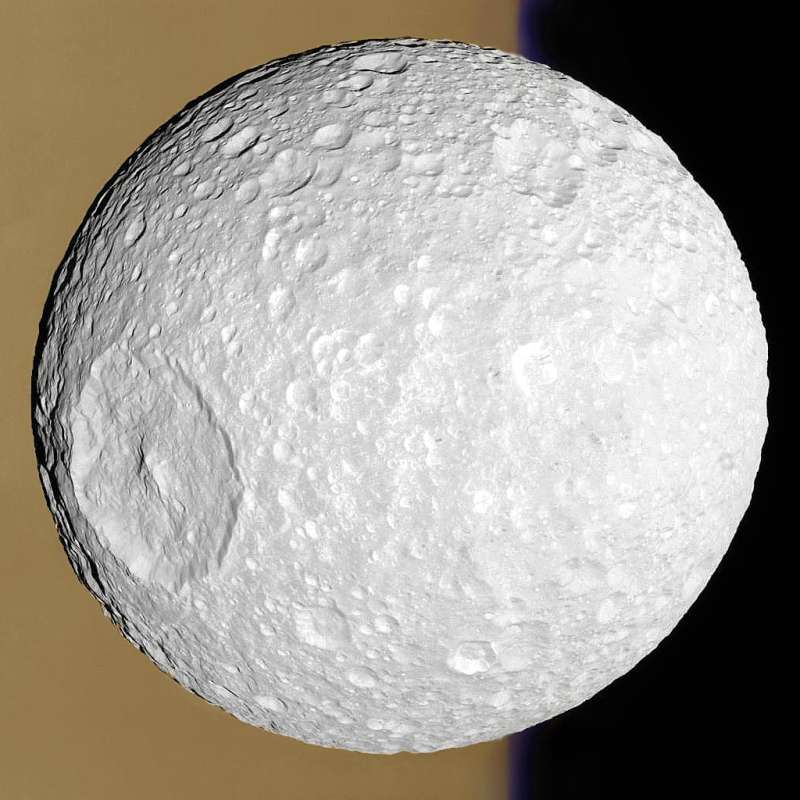Explanation: Whatever hit Mimas nearly destroyed it. What remains is one of the largest impact craters on one of Saturn's smallest moons. The crater, named Herschel after the 1789 discoverer of Mimas, Sir William Herschel, spans about 130 kilometers and is pictured above. Mimas' low mass produces a surface gravity just strong enough to create a spherical body but weak enough to allow such relatively large surface features. Mimas is made of mostly water ice with a smattering of rock - so it is accurately described as a big dirty snowball. The above image was taken during the 2005 August flyby of the robot spacecraft Cassini now in orbit around Saturn. A recent analysis of Mimas's unusual wobble indicates that it might house a liquid water interior ocean.
Follow APOD on:
Facebook,
Google Plus,
or
Twitter
1999 2000 2001 2002 2003 2004 2005 2006 2007 2008 2009 2010 2011 2012 2013 2014 2015 2016 |
Январь Февраль Март Апрель Май Июнь Июль Август Сентябрь Октябрь Ноябрь Декабрь |
NASA Web Site Statements, Warnings, and Disclaimers
NASA Official: Jay Norris. Specific rights apply.
A service of: LHEA at NASA / GSFC
& Michigan Tech. U.
|
Публикации с ключевыми словами:
Mimas - Saturn - спутники Сатурна - кратер
Публикации со словами: Mimas - Saturn - спутники Сатурна - кратер | |
См. также:
Все публикации на ту же тему >> | |
